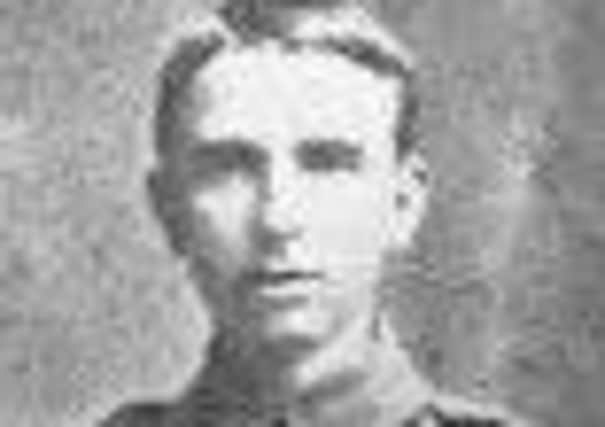‘We got orders to fix bayonets’


The Ballymena Observer carried regular interviews with soldiers back from the front or letters, published, with family permission, from sons serving with the army.
One such interview was given by Private Dan Lorimer of the Royal Irish Rifles.
Advertisement
Hide AdAdvertisement
Hide AdThe Observer reported: “Lorimer is presently at home in Ballymena on furlough. He has three brothers and a brother in law on active service and his parents are justly proud of this fine record. At the Aisne he got a bullet wound in the left shoulder and lay in the trenches all day and ultimately decided to make a bolt for safety.
An army reserve man, Pte. Lorimer was called up at the outbreak of war, proceeding to the front with the first BEF. He was through the Battle of Mons and describing his experiences there, he said:
“We busily engaged in firing on the enemy when we got the order to fix swords in order to make a bayonet charge. Just then, the word came down from the aeroplanes scouting over the German lines that the enemy had also fixed swords ready to charge and that they outnumbered us by almost ten to one.
“We then got the order to remain where we were and when the enemy attacked, Cpl. Heggarty, who has since been killed, gave us the order to for three rounds of rapid firing which we did with good effect and the Germans were checked here and lost heavily.
Advertisement
Hide AdAdvertisement
Hide Ad“We subsequently retired on the right flank till we came to a little village (Le Cateau) on the 26th of August. We opened out and the word came that the German lancers were in the village. Our artillery opened fire on the village and cleared it as far as possible and then our infantry advanced and unfortunately some considerable damage was done to them by a couple of shells fired by a British gun in the rear.
“We got the word to retire again and were lying in a green field when we were directed to return to the road and all the wounded were put on horseback and removed to a church which had been converted to a temporary hospital.
“Private David McClintock (see page 25) was wounded in this battle, being shot in the back and he was taken to this hospital. The church was afterwards blown up by a German shell and almost all the occupants killed. I looked for Private McClintock afterwards and made inquiries about him but I could find no trace of him and I am afraid he must be dead.